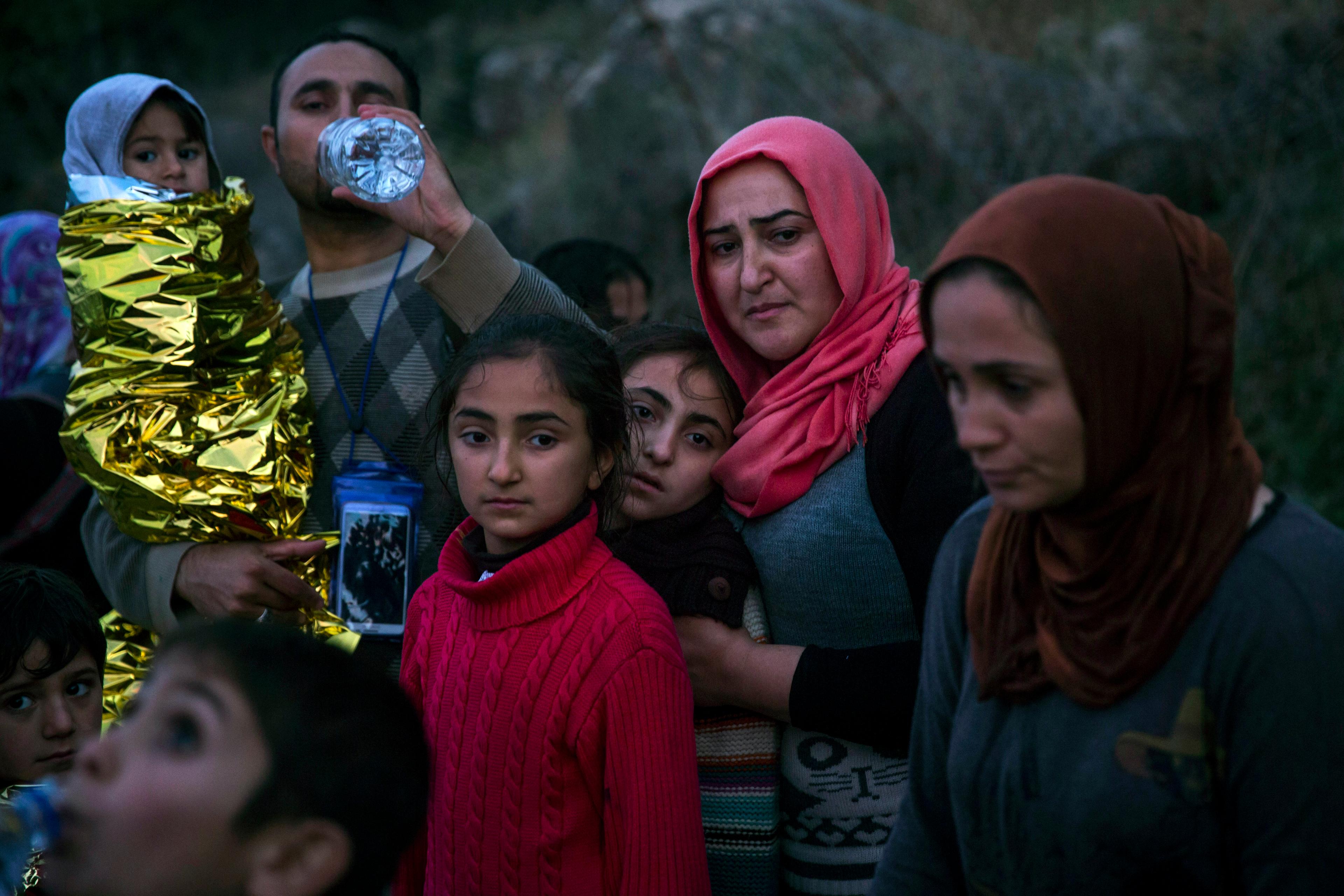
Some public officials in Colorado, including U.S. Sen. Cory Gardner and several state lawmakers, have questioned this week whether the vetting process for refugees who want to come to the U.S. is thorough enough to weed out terrorists.
Colorado U.S. Reps. Doug Lamborn, R-Colorado Springs, and Scott Tipton, R-District 3, are co-sponsors of a bill to restrict Iraqi and Syrian refugees from coming to the U.S. by requiring extra screening. That measure, called the American Security Against Foreign Enemies Act of 2015 or the American SAFE Act of 2015, passed the U.S. House of Representatives this morning.
Even Gov. John Hickenlooper, who wishes to keep the door open to Syrian refugees, has raised the issue, though after a briefing with the White House, he said he's confident the screening process is strong.
The process takes about two years, on average, and is more rigorous for refugees coming from Syria than from other countries, according to Karen Jacobsen. She directs the Refugees and Forced Migration Program at Tufts University in Boston, and says people wanting to pull off an attack in the U.S. would likely have an easier time entering on a tourist or business visa. Jacobsen spoke with Colorado Matters host Ryan Warner.
Click the audio player above to hear the conversation, and read interview highlights below:
On what happens during a roughly two-year vetting process for refugees:
"[The Department of Homeland Security] goes through a long process of exploring data, and any background information, verifying the person is who they say they are... Homeland Security sends out officers that go to these countries of first asylum where the refugee is with his or her family, and they're interviewed... They use biographical and biometric information about applicants, they do this background check. They even, for refugees from Syria, have another layer of screening -- the Syria Enhanced Review Process. Homeland Security, along with other federal agencies including State, Defense Department, the National Counterterrorism Center and the FBI, all of these are involved in this process."
On what happens if the federal government can't verify an applicant's identity:
"It's very much up to the person, the refugee, to prove that they are who they say they are. It's not a case of you're assumed to be innocent unless you're found guilty. It's the opposite: You're assumed that you're a risk unless you can be found not to be a risk... The U.S. does not admit half of the people who apply."
On how the vetting of refugees compares with how other migrants to the U.S. are vetted:
"The fact is, if you wanted to come into the U.S., you could much more easily enter the U.S. as a tourist, or a business person, or even as a student or whatever.... It's much easier to get into the U.S. on a tourist visa... Now of course some countries would not be allowed in probably easily, but, you know, if you think of who the terrorists are, they are not people necessarily coming from Syria. Many people joining ISIS have got passports from Europe, from the U.S., from other countries, and they could easily come in on a tourist visa. So either the U.S. has to decide to put down all entries across its borders, or otherwise it doesn't make any sense to focus on the refugee process because it's a very, very stringent security process."
On whether it's possible for people with intentions to conduct violence to breach the screening process:
"If you were an ISIS terrorist and you had never committed any crime before, and you had never stuck your head out in any way so that you would appear in one of the security databases that exist out there, of which there are many as we know, and you'd never hit the official radar, that you'd been able to escape the monitoring of social media sites, of which our governments -- between the U.S., Israel and the European Security agencies really know how to monitor these things -- then yes, I think it would be possible."









